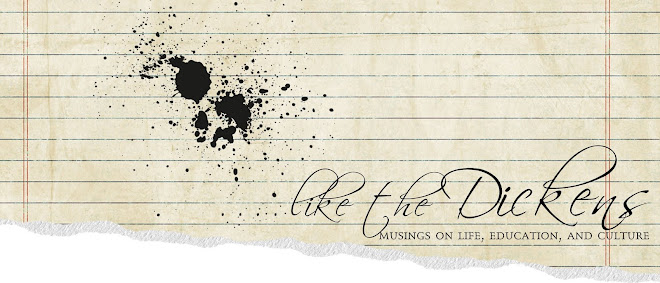"The government which governs best governs least" -- Thomas Paine
Self-government is a theme in my classroom every year. It recurs throughout American history in the Mayflower Compact, the Declaration of Independence and Constitution, the debate over states' rights and the Civil War, and even in the Texas War for Independence. Self government is the classic debate between Jefferson and Hamilton: can the people be trusted to run their own lives or does the government need to step in? But self-government is also the resounding theme of classroom management: can you control yourselves or do I need to step in with rules and control your behavior for you? In other words, self-government is my mantra and my soapbox.
On the first day of school when I am going over the rules, I talk to my class about why little children have to raise their hands in class--because they do not have the self control to refrain from interrupting the speaker and one another. Hopefully in seventh and eighth grade, we can have a discussion without interrupting or rude behavior, and in that case, hand raising is not necessary. However, if the students cannot govern themselves and chatting, interruptions, and immaturity abound, I will be forced to govern them and only call on students with raised hands. Same goes for behavior outside the classroom: the little ones have to walk in a line because they lack the self control necessary to walk in an orderly fashion. Seventh and eighth graders, on the other hand, have hopefully reached the level of maturity where they can walk from class to class like adults without supervision because they can be counted on to supervise themselves. If I am ever called out of the room for a minute, I will simply tell my class to continue what they are doing and "Self-govern." Sometimes this works out better than others.

The other day, I stepped out to speak with another class about a discipline issue and was gone longer than expected. As a result, I was a full 7 or 8 minutes late to class. When I finally got to class, my heart leaped for joy at the sight of eighth graders governing themselves. Sure enough, they were sitting in a circle in the center of the room (as we often do for literature), and they were taking turns reading aloud from The Count of Monte Cristo and telling back what they read. One student had even taken his place on my teacher's stool (while that seat is normally off limits, under the circumstances I allowed it).
My goal is to train my students well enough that I can sit back in what Charlotte Mason calls "masterly inactivity": allowing the children to get their hands dirty in the text placed before them, walking alongside and guiding them. Outside of the classroom, they should understand what is expected of them and do what is right no matter who is or is not watching. Because that is self-government and it is the right thing to do.

I think TJ would have be proud of those young minds self-governing.


No comments:
Post a Comment